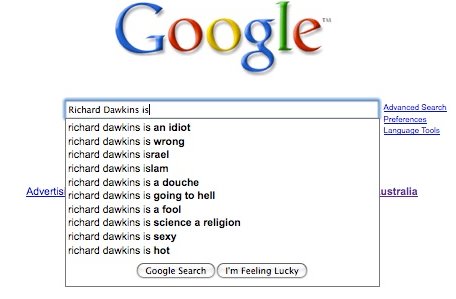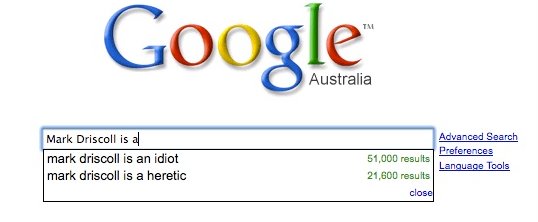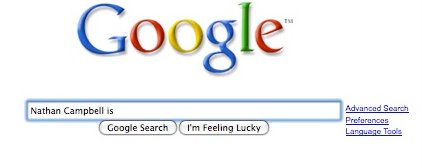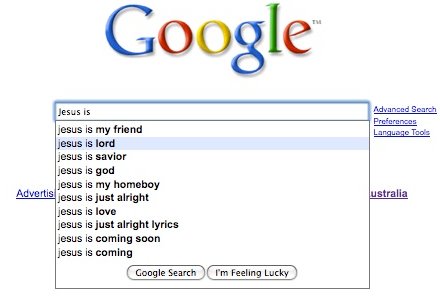Atheists rightly get angry when Christians make arguments about “morality” on the basis that Hitler was an atheist (by most accounts). It’s a stupid argument by an extreme and is the equivalent of people arguing that Christianity causes war on the basis of the Crusades.
No, Hitler is not a problem when it comes to atheists being able to act morally – but he is a problem for atheists when it comes to the question of evil.
I don’t know if this is true for all atheists. It’s probably not. But the ones I talk to, who are pretty smart, and cover a spectrum of “moral” approaches to life, are pretty consistent on the question of the existence of evil. They say there’s no such thing.
I asked them, out of curiousity, to define evil.
Here’s a mix of responses I got…
I find evil is a helpful word to describe abhorrent things. "Evil" is not a noun, it’s an adjective. What does exist is broken people and randomness… I don’t like it when Kevin Rudd uses it to describe something. My immediate reaction is negative because it makes me think of spiritual absolutes which I really just see as a lazy guide to morality. When I use the word "evil", I would use it with the knowledge of the religious overtones to give the word more impact.
It’s much better to view the world is terms of Harmful/Not Harmful.
Was Hitler harmful, yes.
Is homosexuality harmful, no.
That’s more meaningful than:
Was Hitler evil, yes.
Is homosexuality evil, yes.
Is abortion harmful? Yeah, I guess, but then is not-abortion even more harmful? I think so. Talking in terms like that is a lot more helpful than absolute evil.
And another response:
Evil is just a lazy shorthand way of simplifying things. Evil exists in stories not in reality. I also think it’s harmful as an idea. Let’s go Nazi’s since it seems appropriate. Humanising a Nazi or Hitler is something that will get the public up in arms. But all "evils" are perpetrated by people not by some strange creatures of darkness and we can’t ignore this. To understand them is not to excuse actions but it can inform how these things happen. The Nazi’s, paedophiles, murderers, dance music producers, etc are just people.
And another…
I think the word "evil" creates more problems than solves it. I suggest a movement toward more specific terms, like "malicious", or "malevolent", or "unfortunate", depending on context and circumstance.
It seems there are a few of problems these guys have with the label. It’s got theological, and semantic baggage that make it unappealing – but in this discussion there’s also a question of relativity.
I personally find comfort in operating in a binary world of good and evil. I think it explains lots of things. I think Christianity provides a framework for understanding this binary that atheism doesn’t.
I think atheism is at its weakest when it tries to address evil, or bad, behaviour and explains away the purposeful actions of malevolent dictators as “insanity”, or the acts of the crazy. It’s more than that. There’s rationalised intent involved.
Reading any atheists (not just these specific friends of mine) trying to define how they decide if a behaviour is “positive” or “negative” is like watching someone trying to nail jelly to a wall.
There is no atheist apologetic for evil that sounds even remotely convincing to someone who believes in “good” and “evil” as absolutes. Which is a shame for the atheist – because all of our popular entertainment perpetuates the idea of such an absolute. Actually, it seems that the exceptions to that rule are the truly exceptional and intelligent, more nuanced, shows like the West Wing, The Wire and The Sopranos.
Good and evil come in degrees – and particular actions are nuanced by context. Shooting someone and killing them is not always evil. Similarly to these atheists I would support a harm v benefit process when deciding whether or not to shoot a dictator. But murder (defined as unjustifiable killing) is always evil, or bad. It doesn’t matter what rationalisation the perpetrator uses as a justification. If it’s truly justifiable then it’s not murder.
The Bible has a fair bit to say about evil, and about sin – and I think it’s where the Bible intersects the best with the human experience, along with the evidence of careful design in creation. I also think it’s the point where atheism is at its weakest when it comes to alternative explanations for why things are the way they are.
What do you reckon?
Update: one of my atheists pointed out that I haven’t really made a clear point about why I think atheism struggles with Hitler/evil.
Here’s my argument…
Most of atheism’s arguments from a scientific standpoint make sense if you remove the idea of God from the picture. You can observe most of the things atheists observe. And come to a conclusion ultimately based on how you think things came to be…
When it comes to giving any rationale about why people behave in evil ways – you’ve either got a compelling and consistent theological picture (evil is the result of rejecting God’s rule) or you’ve got the atheist’s answer – “some people do stuff that other people don’t like.”







